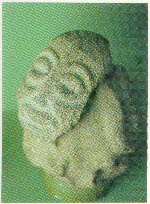To many, the phrase is a vaguely familiar one. "We hold these Truths to be self-evident, that all Men are created equal, that they are endowed by their Creator with certain unalienable Rights, that among these are Life, Liberty, and the pursuit of Happiness." We associate the phrase with the United States, and – as with all things American – we ascribe it automatic legitimacy as an ideal worth pursuing. Listening to our call-in show experts, I've heard the claim that it's good enough for the Americans, so it should be good enough for us too (or words to that effect).
But guess what? The term "inalienable rights" does NOT appear anywhere in the US Constitution! Nope, not one single place. Look it up. Instead, the words are in the US Declaration of Independence (using the word "UNalienable" instead of "INalienable"). This is a huge difference.
What's the difference? Well, first off, the Constitution sets forth your rights, not the Declaration of Independence. No one has ever gone to court saying "my Declaration of Independence rights have been violated." It can't happen. Your constitutional rights are in the Constitution, and that document doesn't speak of "inalienable rights" in the USA.
There are other rights in the Declaration of Independence that aren't in the Constitution, including the "right and duty" to "throw off Government, and to provide new Guards for their future security" – in other words, the right to revolution. Imagine THAT in a civil constitution!
In fact, truth be told, the word "God" or "Creator" is also absent from the USA Constitution, as part of its well-known separation of church and state. There is no God in the USA Constitution whatsoever, and intentionally so. As such, you couldn't really argue a divine basis for any US Constitutional right. You can imply it, but you could also imply it in the Vincentian Constitution, without all this hullabaloo for an explicit mention.
But wait, there's more! What about these other inalienable rights advocated by TIRL, like the right to own property? According to Wikipedia, the first draft of the Declaration of Independence said:
That all men are by nature equally free and independent, and have certain inherent rights, of which, when they enter into a state of society, they cannot, by any compact, deprive or divest their posterity; namely, the enjoyment of life and liberty, with the means of acquiring and possessing property, and pursuing and obtaining happiness and safety.However, Ben Franklin and Thomas Jefferson decided to take the government out of the property business, and instead stick to the pursuit of happiness. The final draft of the Declaration of Independence reads:
We hold these Truths to be self-evident, that all Men are created equal, that they are endowed by their Creator with certain unalienable Rights, that among these are Life, Liberty and the pursuit of Happiness.
Years later, Franklin famously said that "you don't have a right to happiness, only the pursuit of it. You have to catch it yourself." Talk about a qualified and ill-defined "right"!
So there you have it. People using the most avowedly non-religious democratic Constitution in the world (USA's) as the basis to advocate the addition of religious language. People calling for explicit mention of a phrase by citing a document where it is not explicitly mentioned. High comedy.
Those of you who see a role for God, for inalienable rights generally, or for inalienable rights to property – please don't look to the US Constitution. You're barking up the wrong tree.
Maybe we should draft a Declaration of Independence too?


No comments:
Post a Comment